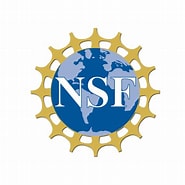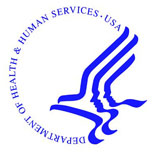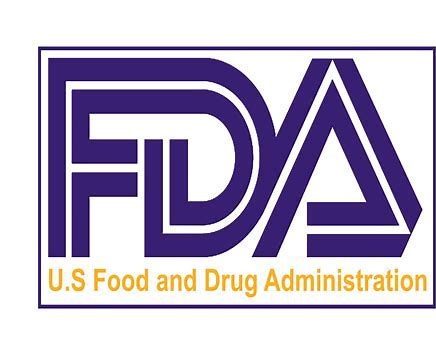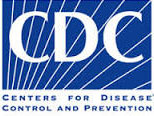Info Links
NIH & Other Links
-
 The NIH Common Fund's Bridge to Artificial Intelligence (Bridge2AI) aims to advance biomedical research by paving the way for widespread adoption of artificial intelligence (AI) capable of addressing intricate biomedical challenges that go beyond human intuition. Read more.
The NIH Common Fund's Bridge to Artificial Intelligence (Bridge2AI) aims to advance biomedical research by paving the way for widespread adoption of artificial intelligence (AI) capable of addressing intricate biomedical challenges that go beyond human intuition. Read more. -
 For NIH Central Resource for Grants and Funding information, check here OR here.
For NIH Central Resource for Grants and Funding information, check here OR here. -
 Check here for funding opportunity from NSF.
Check here for funding opportunity from NSF. -
 US Dept. of Health & Human Services (HHS) protects the health of all Americans and provides essential human services. Read more.
US Dept. of Health & Human Services (HHS) protects the health of all Americans and provides essential human services. Read more. -
 National Institute of Health (NIH) is the nation’s medical research agency—making important medical discoveries that improve health and save lives. Read more.
National Institute of Health (NIH) is the nation’s medical research agency—making important medical discoveries that improve health and save lives. Read more. -
 US Food and Drug Administration (FDA) ensures the safety and effectiveness of all drugs, biological products, medical devices, and animal drugs and feed; and makes sure that cosmetics and medical and consumer products that emit radiation do no harm. Read more.
US Food and Drug Administration (FDA) ensures the safety and effectiveness of all drugs, biological products, medical devices, and animal drugs and feed; and makes sure that cosmetics and medical and consumer products that emit radiation do no harm. Read more. -
 Center for Disease Control (CDC) provides direct access to important health and safety topics, data and statistics, tools and resources. Read more.
Center for Disease Control (CDC) provides direct access to important health and safety topics, data and statistics, tools and resources. Read more. -
 World Health Organization (WHO) is the directing and coordinating authority for health within the United Nations system. Read more.
World Health Organization (WHO) is the directing and coordinating authority for health within the United Nations system. Read more.
Useful Links
The National Institutes of Health (NIH), a part of the U.S. Department of Health and Human Services (HHS; see its organizational chart), is the primary Federal agency for conducting and supporting medical research. It also provides authentic health information for public awareness (see; also see, AHRQ). Its Eunice Kennedy Shriver National Institute of Child Health and Human Development (NICHD), established by U.S. congress in 1962, conducts and supports research on topics related to the health of children. To learn more about the Institute and its activities, see.
With about USD 49 billion for FY2023, NIH is the largest source of funding for biomedical research in the world. Comprising 27 divisions and institutes, NIH focuses on various aspects of health research that includes specific diseases, health conditions, and scientific disciplines. Its Common Fund is a funding entity within the NIH that supports bold scientific programs that catalyze discovery across all biomedical and behavioral research. These programs create a space where investigators and multiple NIH Institutes and Centers collaborate on innovative research expected to address high priority challenges for the NIH as a whole and make a broader impact in the scientific community. It's Bridge2AI is a short-term, goal-driven strategic investment supported by the Common Fund. See funding.
National Science Foundation (NSF) also offers funding opportunities — including grants, cooperative agreements and fellowships — that support research and education across science and engineering.
The Food and Drug Administration (FDA) is responsible for protecting the public health by ensuring the safety, efficacy, and security of human and veterinary drugs, biological products, and medical devices; and by ensuring the safety of our nation's food supply, cosmetics, and products that emit radiation. READ MORE.
Centers for Disease Control and Prevention (CDC) is dedicated to protecting health and promoting quality of life through appropriate information on the prevention and control of diseases. Also, see its National Center for Public Health Informatics (NCPHI), and various health-topics from CDC.
The Center for Nutrition Policy and Promotion at the United States Department of Agriculture (CNPP) is dedicated to improve the health and well-being of Americans by developing and promoting dietary guidance that links scientific research to the nutrition needs of consumers.
The Centers for Medicare & Medicaid Services (CMS) is a federal agency that administers the nation’s major healthcare programs, including Medicare, Medicaid, the Children’s Health Insurance Program (CHIP), and the Health Insurance Marketplace. CMS works in partnership with the entire health care community to improve quality, equity and outcomes in the health care system.
The Office of the National Coordinator for Health Information Technology (ONC) is at the forefront of the HHS’s health IT efforts and is a resource to the entire health system to support the adoption of health information technology and the promotion of nationwide, standards-based health information exchange to improve health care. READ MORE.
World Health Organization (WHO) coordinates the world’s response to health emergencies, promote well-being, prevent disease and expand access to health care. See the budget of major countries to global R & D investment , driving innovation and scientific advancements.